We are publishing the second part of the story about the large-scale game "Иарбан? Иаба? Ианба?" ("What? Where? When?"), which was organized and held by the WAC, and which became the beginning of a large project.
Intellectual game "Иарбан? Иаба? Ианба?", dedicated to the history and ethnography of the Abaza people, took place. It was held and organized by the World Abaza Congress.
The "Houston" team players became the winners. Overall, four teams from the intellectual creative club "DUNE" took part in the game: "Agents Theo", "Houston", "When David" and "White Collars".
WATCH THE FULL VERSION OF THE "ИАРБАН? ИАБА? ИАНБА?" GAME HERE
"It is important that there is an answer"
According to the organizers of the game, which was of an educational nature, a special role was assigned to cognitive annotations to the correct answers, which were to be read by the presenter.
The author of the idea, the head of the Women's Councils of the WAC, Geta Ardzinba, said in this regard that the organizers had a certain fear before the game: the teams may simply not know the correct answers.
"Since it was important for us to tell as much important information as possible about the culture of the Abaza people, we prepared background information for each question. Well-known Abkhazian scholars Viacheslav Chirikba, Marina Bartsyts, Ruslan Gozhba, as well as the well-known keepers of traditions in Abkhazia, artist Batal Dzhapua and master of blacksmithing Timur Dzidzaria were involved in this process as experts," explained Ardzinba.
However, she notes, the fears were in vain, and the teams were able to play all the rounds with interesting and correct answers. Thus, one of the main missions of "Иарбан? Иаба? Ианба?" – educational one - ended in success.
"It was very important for us that there was an answer, and an annotation for the answer would surely be given. We are glad that the teams were actively involved in the discussion process, it was clear to the organizers that the teams were well prepared," said Ardzinba.
The game is over, the project has begun.
Despite the fact that the players already had extensive experience of participating in intellectual games, the topic of the "Иарбан? Иаба? Ианба?" questions was completely new for them, however, six months before the game itself, the teams were given the necessary literature, the study of which, among other things, helped them to perform at a good level.
Geta Ardzinba noted that "Иарбан? Иаба? Ианба?" will be continued.
"There are plans for the future; we hope that they will become reality. The format will be the same, but the teams will change. There are several ideas. For example, we would like teams of representatives of the Abkhaz-Abaza Diaspora from different countries to take part in this project. The first game is over, but the whole project has begun," said Ardzinba.
Sharing her impressions of the game, the director of the intellectual creative club "DUNE" Asya Sanosyan recalled that the struggle for the championship was "very tough": the teams were literally neck and neck.
"The intensity of passions lasted until the last minutes, - she said. - I am very happy for the winning team and the rest of the teams that took part in the game. It was somewhat different from what our guys were used to. I hope the audience will be interested not only in following the teams, but also in participating in the game. Thanks to Congress for such a project."
The level of preparation and conduct of the game was highly appreciated by the Director General of the Abkhazian State TV and Radio Company Irina Agrba. Abkhazian television is the main information partner of the project.
"We are one, we are together. Abkhaz-Abaza youth promotes their common history, traditional values. We will not dissolve in the ocean of globalization, we will survive - this is how I understand the main messages of the project. I accepted it immediately, and my colleagues also took the idea well. Frankly, the Congress was ahead of us, we ourselves would like to have such a project even earlier, but did not have time to start working on the format of such a program. Thanks to the Congress for the fact that we managed to do this together," thanked Agrba.
She called the project "educational and youthful", which, in her opinion, will expand the channel's audience. The head of the TV and radio company also noted that work in this direction "enhances the interest and love of young people for their history, for their traditions."
The host of the project, journalist of the Abkhazian television Amanda Poniya, expressed great gratitude to the World Abaza Congress.
"I want to say thank you so much for the opportunity to be the host of this project, because it’s a great experience for me. I have never hosted such programs. I read the questions and was worried if the participants would be able to answer them, they seemed so difficult, but my worries were in vain," the presenter shared.
Difficult but interesting questions
The fourth round included video questions sent by representatives of the Abkhaz-Abaza Diaspora from Turkey, Jordan, Russia, Syria, Egypt.
The first video question was sent from St. Petersburg by the Chairman of the World Abaza Congress, statesman and public figure, vice speaker of the parliament of Karachay-Cherkessia Mussa Ekzekov.
The question was in the Abaza language. Ekzekov read out the lines of the poem of the famous Abaza poet Kerim Mkhtse "Autumn", the main theme of which is the Motherland.
The wife of General Walid, Marchand Jansett Kazanba from the Syrian Arab Republic, sent another of the fourth round questions. Kazanba is dealing with broad social activities, runs the fund for the memory of those killed in hostilities in Syria. Her question was about the wedding ceremony of the Circassians, it was about the custom of inviting friends of the bride and groom to the wedding, who came to the Caucasus from Ancient Rome.
During the game there were many questions about the history of the Abaza people, questions about legends, questions about sports, the life of the Abkhazians and Abaza, questions about national folklore, folk musical instruments ...
For example, in one of the rounds a black box was brought into the studio, in which the апхьарца folk musical instrument was found (literally translated from Abkhaz as "that which motivates to go forward" – ed.). According to the same principle, the акамчы (in translation from Abkhaz lash - ed.) was brought out of the black box as the answer to one of the questions.
Some of the questions about music were actually "musical". A melody was played in the studio, and the teams had to guess which national instrument played it.
Surprises - not only from black boxes
The final sixth round of the game was built on questions about ethnography, about ancient customs and traditions of the Abaza and Abkhazians, and the final round gave the most "delicious" question of the game.
It was dedicated to the traditional sweet treat of the Abaza akhalilua-khilpa (a dish made of halva, which has a conical shape, like a hat, which was put on a girl's head upon reaching
adulthood, hence the word khylpa means "hat" in translation from Abaza - ed.). In the old days in Abazashta, it was presented to special guests at a wedding, and today it is used during the ceremony of the first step of a child. Halilua-khylpa is also made in Abkhazia, where the treat is used as a memorial attribute and is called, of course, already in Abkhazian. It was the Abkhazian name of the Abaza analogue of this common dish for the Abkhaz-Abaza people that the players were asked to give. However, no one expected the "correct answer" to sound in the studio right away!
A girl in a traditional Abaza costume (the costume was provided by Diana Ionova, the head of the Ethnic Theater of Fashion Apsny project - ed.) brought into the hall that very special attribute of Abaza weddings halilua-khylpa - a sweet dish that is commonly called ахалуа in Abkhazia.
The most amazing thing is that the sweet turned out to be of Abaza origin and arrived in Abkhazia from Abazashta! Halilua-khylpa was specially made for the "Иарбан? Иаба? Ианба?" game by Natella Dzhamakulova, coordinator of the Women's Councils of Abaza settlements at the ANO "Alashara".
Later, Natella admitted that she took up the making of traditional Abaza sweets for the project with great pleasure.
"Abaza and Abkhazians are one people. Despite this, the culture of the Abaza is in many ways unique and original. In Abkhazia, unfortunately, little is known about the Abaza cuisine. When we were asked to prepare a traditional Abaza halva, we happily agreed. Such events help us to get to know each other better, to learn the unique features of our common rich culture and identity. We are very pleased to be a part of this event," said the coordinator.
Time for kind words
Several hours of the game became not only a time of intense play and serious rivalry, but also an evening of kind words and congratulations. Executive Secretary of the World Abaza Congress Inar Gitsba wished "further victories" to the participants, and the author of the project Geta Ardzinba expressed gratitude for the "true partnership" to the leadership and staff of the Abkhazian State TV and Radio Company. She noted the success of the first game of the "Иарбан? Иаба? Ианба?" project.
"Today the first game of a very important project took place within the framework of the World Abaza Congress. First of all, I congratulate our WAC team on the successful start and launch of the ethnographic intellectual project. Special thanks to our leader, our "locomotive", Chairman of the Supreme Council of the World Abaza Congress Mussa Ekzekov for trust, for confidence in the result and success of our undertakings," said Ardzinba.
She also expressed the hope that viewers will love the project as well.
All teams were awarded diplomas of participants in the intellectual game "Иарбан? Иаба? Ианба?", and the winning team will receive the main prize - a challenge cup created especially for the project by a young designer Arina Chkadua. Another prize of the winner was a certificate for participation in the international championship in the intellectual game "What? Where? When?" to be held in Russia.
Microphone to the winners
The captain of the "Houston" team Said Tyrkba, tired but happy, told on behalf of the whole team that the guys got extremely positive emotions from the game.
"Thank you all for the work done. We had a very intense fight. Until the very end, we could not charge into the leads, but at the end we got a very good series of correct answers, we were able to pull ourselves together and win," he said.
Most of all, the team players remembered the question "about the constellation." This was the last question of the fifth round. The question was the following: "In the Abkhazian cosmogony, the brightest star of this constellation is called Ашәуа ииаҵәа - the Star of the Abaza. The etymology of the name originates in one of the Abkhazian legends. Name the constellation and its main star."
The only team that gave the correct answer was "Houston". This is the Canis Major constellation and the star Sirius (according to legend, the Abaza, returning home through the pass from Abkhazia, mistook the midnight star Sirius from the constellation Canis Major for the Morning Star (Sharpny) and, having lost it among other stars in anticipation of dawn, fell from breakage and perished. This midnight star was named in honor of the traveler, - ed.)
"This question inspired us and after that we answered correctly all five questions of the sixth round," said the captain of the "Houston" team.
WAC says thank you
Such a large-scale project as "Иарбан? Иаба? Ианба?" could not have taken place without the support of friends, and, fortunately, the World Abaza Congress has many of them. The Congress expresses gratitude to the Abkhazian State Museum - for the provided ethnographic material, the Sukhum State School - for the provided musical instruments, the cellular company "Aquafon" - for the opportunity to place banners "Иарбан? Иаба? Ианба?" in the capital.
The Congress expresses special gratitude to the socio-historical public "Abaza history" of the Abaza ethnos represented by its administrator Maryana Karmova - for compiling the 6th round questions, Raul Kobakhia, administrator of the historical public based on the electronic archive of Abkhazian ethnographic photo materials, artistic director of the Otar Khuntzaria State Orchestra of Folk Instruments Denis Arukhaa - for the provided musical instruments, businessman Irina Zarkua - for the equipment provided for the game, the head of the ANO "Alashara" in Cherkessk Murat Mukov - for consultations on ethnographic information about the Abaza and for the provided old photographic materials, Natella Dzhamakulova, head of the Women's Councils of the ANO "Alashara" - for halilua-khylpa from the Karachay-Cherkess Republic, Diana Ionova, head of the "Ethnic fashion theater Apsny" project - for participation in the game of model Anastasia Zhiba and for the provided national costume, Timur Argun, the head of the Uarada children's choreographic studio, and Shamil Agumava, the soloist of the Uarada children's choreographic studio, who assisted the presenters during all seven hours of shooting, Batal Dzhapua, Vladimir Vouba, Khamid Savkuev and many other masters for the opportunity to use their original works...
The WAC team also thanks Elena Kobakhia, Edem Kogonia, Saida Bobua, Bella Adzhieva and Beslan Kilba - each of them cared about the tasks of the Congress and provided help to the project without which it would not be so bright and memorable.
The Congress would like to express special gratitude to Esma Kvitsinia, the director of editing the video version of the project. Esma was imbued with the idea "Иарбан? Иаба? Ианба?" and devoted a lot of her personal time to the creation of the video version, the selection of video and photographic materials, the selection of music, which, of course, played an important role in the presentation of the project. The editing took more than two months of painstaking work by Esma Kvitsinia.
The Congress also thanks everyone who sent video questions: Janset Kazanba (Syria) Akhmet Khapat (Turkey), Inal Gechba (Jordan) and Jehad Abaza (Egypt).
P.S
"Иарбан? Иаба? Ианба?" is not just a new exciting project, not just months of painstaking, but interesting preparation for everyone - both participants and organizers. It is also a whole spectrum of amazing emotions: excitement, joy, and ... pride! "Иарбан? Иаба? Ианба?" is about us, about the Abkhazians and Abaza, about our history, culture and life. "Иарбан? Иаба? Ианба?" is a unique project that everyone has the opportunity to watch on the Abkhazian State Television or on the website of the World Abaza Congress.
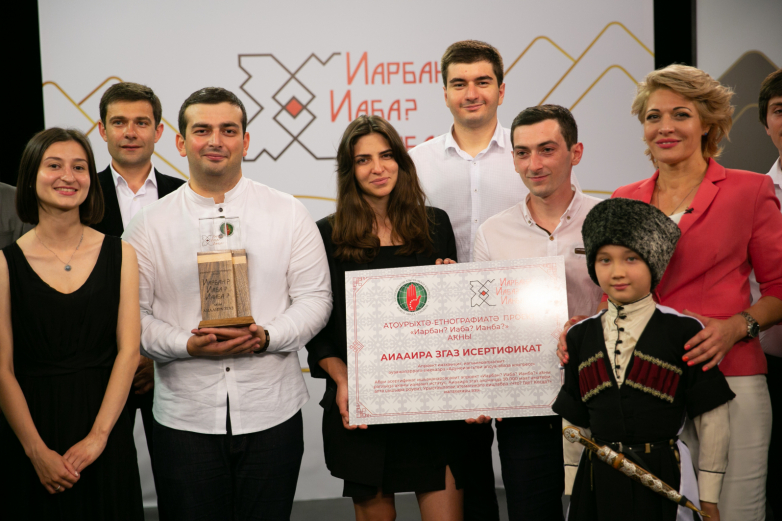
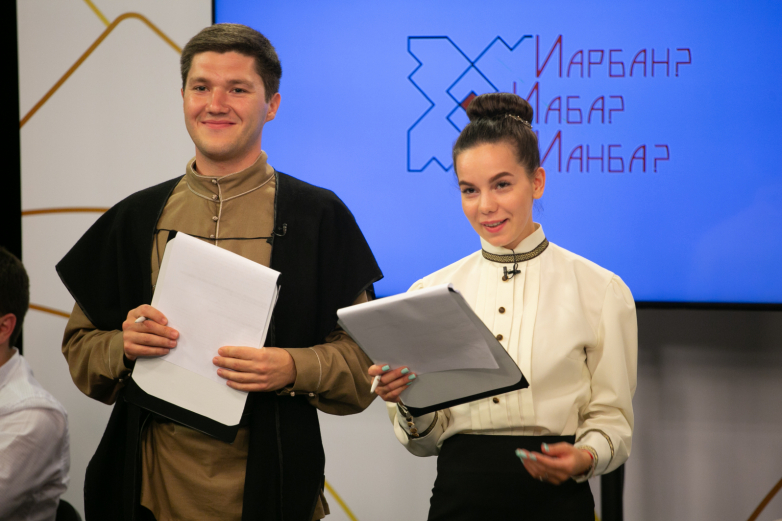
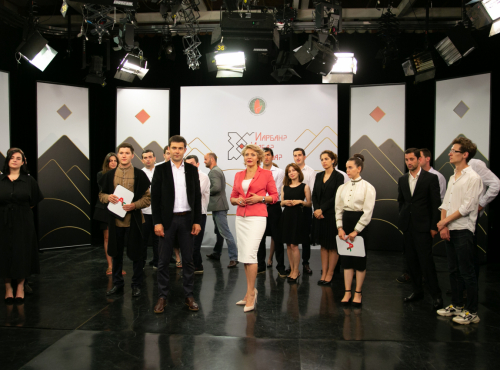
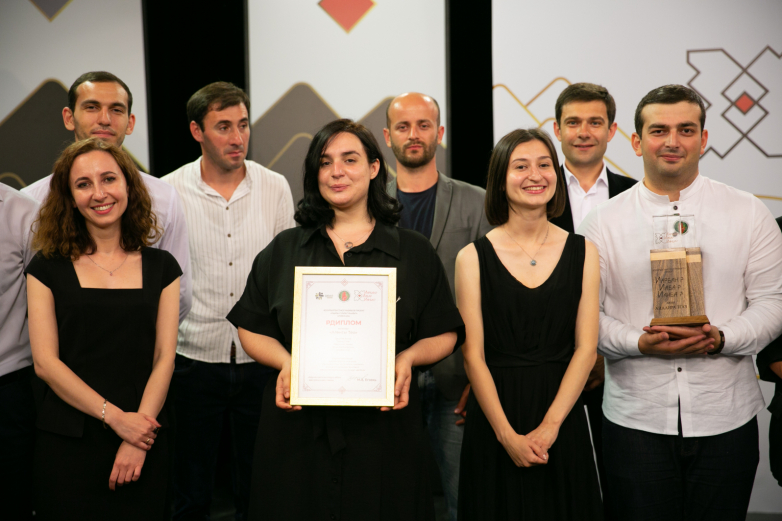
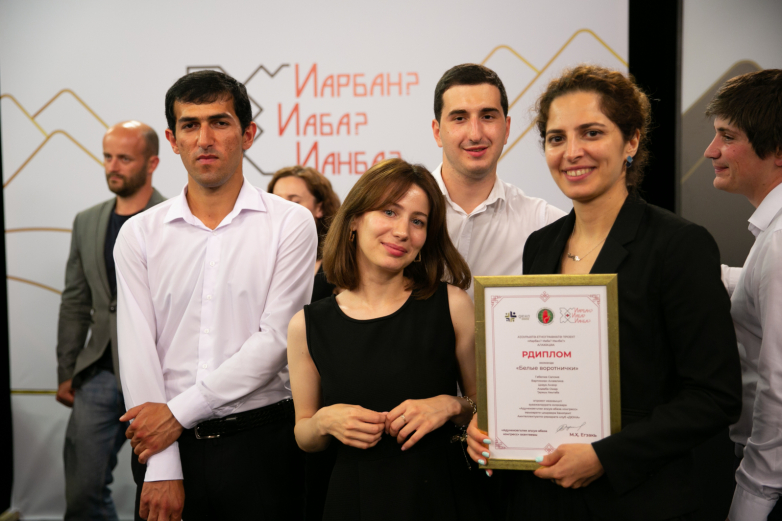
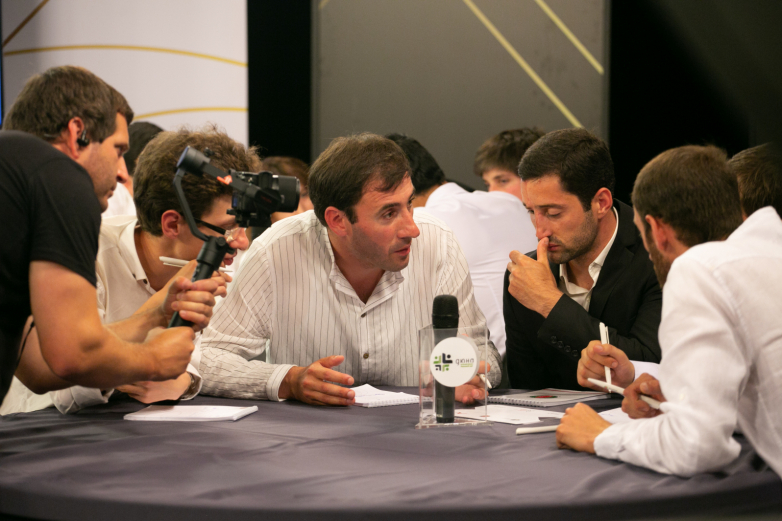
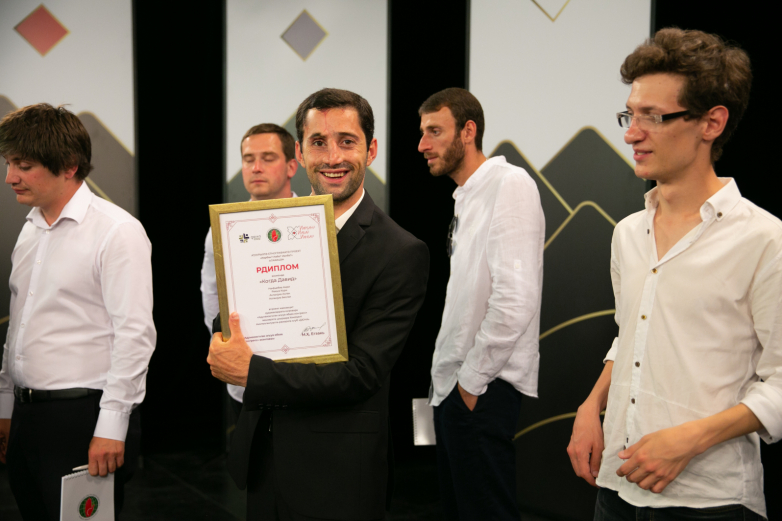
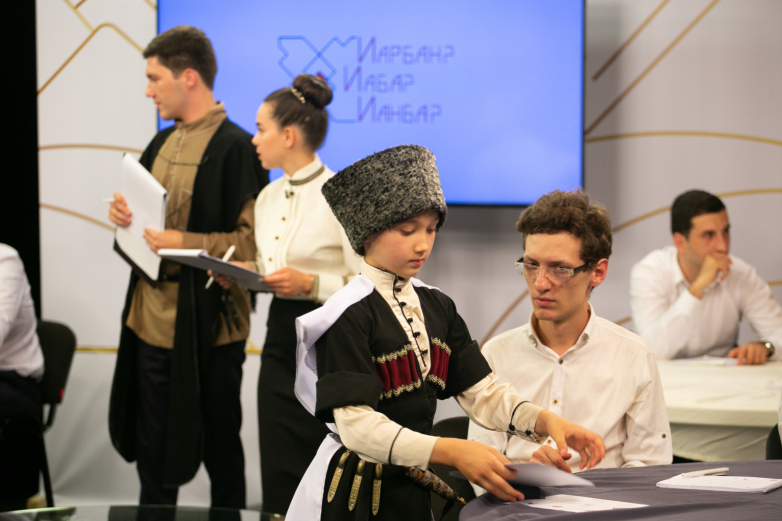
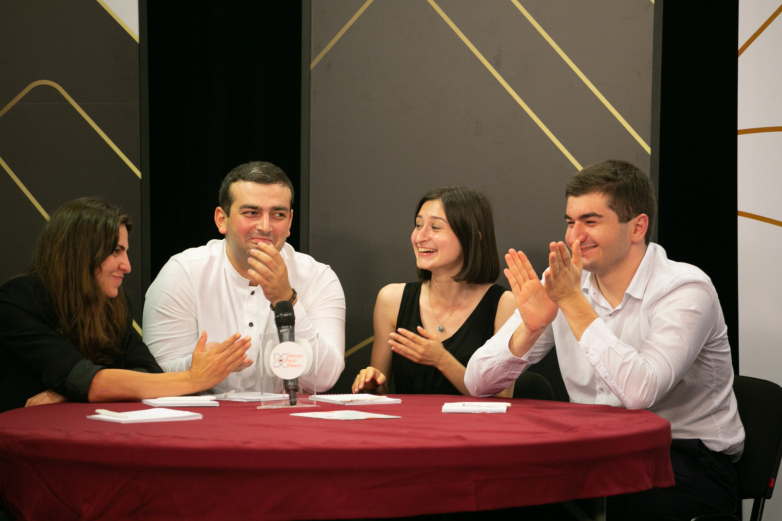
to login or register.